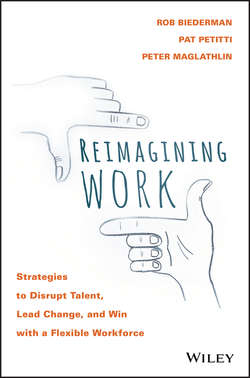Читать книгу Reimagining Work - Peter Maglathlin - Страница 7
На сайте Литреса книга снята с продажи.
CHAPTER 1
A Quick History of Work
ОглавлениеThe caveman was the original freelancer. He honed a skill, put it to work, and with any luck, made a subsistence living. There is not much record keeping on the numbers from back then, but the species persevered, so we can assume it was step one on the road to today's workplace.
At some point, trade and commerce began, perhaps in prehistoric times or maybe after that, depending on which historians you believe. Regardless, over the millennia a system evolved that allowed people to move their goods. Hunters could trade pelts for spices or teas and the bowls and utensils needed to eat. People learned about agriculture and created farms. A feudal system later emerged: serfs working on a lord's estate – in his fields, mines, and forests. Skilled trades developed: the blacksmith, the silk craftsman, the stonemason. A merchant class emerged. These were people fundamentally out for themselves in the developing marketplace – the small businessman or, to use today's terminology, the entrepreneur.
The seventeenth century saw the birth of the modern‐day corporation – a legal construct that created a way for a group of people to act as a single entity. The Dutch East India Company was formed in 1602, and the Hudson's Bay Company, a Canadian entity, was incorporated a few decades later.
Конец ознакомительного фрагмента. Купить книгу
